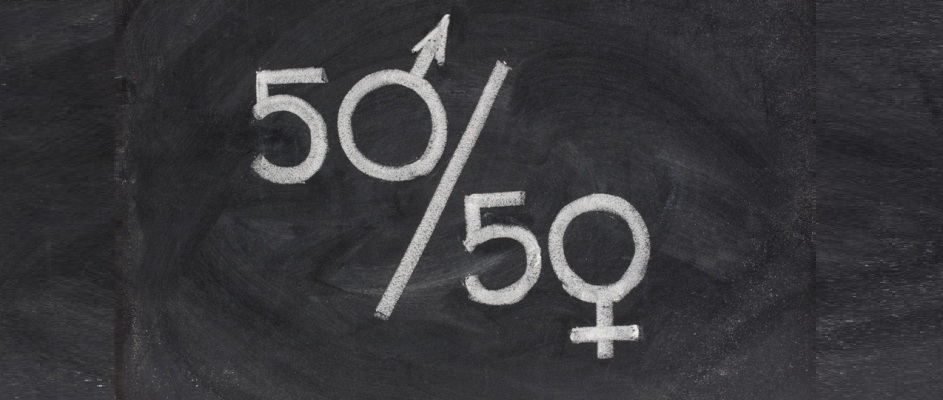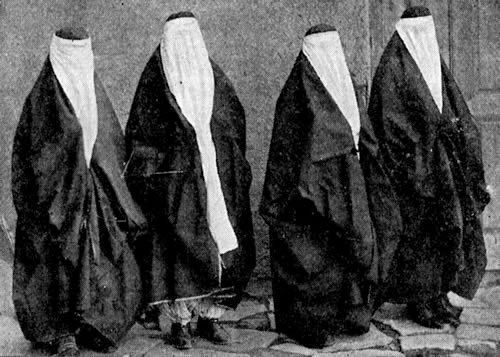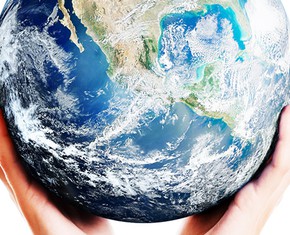The views expressed in our content reflect individual perspectives and do not represent the authoritative views of the Baha'i Faith.
Men have oppressed women for centuries.
Denied personal safety, independence, education, the vote, political power, property rights and even control over their own bodies, minds and destinies, women have suffered the consequences of inequality in most societies around the world since the beginning of recorded history.
The Baha’i teachings say the time has come for those terrible injustices to stop. The fundamental Baha’i principle of the equality of the sexes, from the beginnings of the Faith’s earliest years, has led people everywhere toward the recognition of women’s rights and the fair and equitable treatment of women:
In the world of humanity we find a great difference; the female sex is treated as though inferior, and is not allowed equal rights and privileges. This condition is due not to nature, but to education. In the Divine Creation there is no such distinction. Neither sex is superior to the other in the sight of God. Why then should one sex assert the inferiority of the other, withholding just rights and privileges as though God had given His authority for such a course of action? If women received the same educational advantages as those of men, the result would demonstrate the equality of capacity of both for scholarship. …Divine Justice demands that the rights of both sexes should be equally respected since neither is superior to the other in the eyes of Heaven. Dignity before God depends, not on sex, but on purity and luminosity of heart. Human virtues belong equally to all! – Abdu’l-Baha, Paris Talks, pp. 161-162.
The Baha’is have promoted the equality of the sexes since their Faith’s inception in the middle of the 19th Century. In Persia, where the Baha’i Faith had its beginnings, the unequal treatment of women was historically well-documented and particularly oppressive – and when the Baha’i Faith began, this fundamental principle of gender equality generated enormous controversy and persecution. Even today, Baha’is are imprisoned in Iran for their advocacy of gender equality and other progressive Baha’i teachings.
But the Baha’i approach to achieving gender equality in the world has a unique and unusual aspect. A century ago Abdu’l-Baha, the son of the Baha’i Faith’s Founder Baha’u’llah, actively encouraged social movements for the equality of women – by asking men to take responsibility for the issue:
Woman must endeavour then to attain greater perfection, to be man’s equal in every respect, to make progress in all in which she has been backward, so that man will be compelled to acknowledge her equality of capacity and attainment.
God’s Bounty is for all and gives power for all progress. When men own the equality of women there will be no need for them to struggle for their rights! One of the principles then of Baha’u’llah is the equality of sex.
Women must make the greatest effort to acquire spiritual power and to increase in the virtue of wisdom and holiness until their enlightenment and striving succeeds in bringing about the unity of mankind. – Paris Talks, p. 163.
That phrase – “When men own the equality of women” – calls for a radical new take on the issue of equality. It asks men to become the advocates of women; to stand up for their rights; to help bring about a new era of gender equality around the world. Baha’is understand that the absolute equality of men and women advances daily in the world, and that male involvement will help bring it about more quickly, more efficiently and with more unity of purpose:
Men, for their part, must learn to cooperate with women and encourage their efforts. When men actively promote the principle of equality, women will no longer have to struggle for their rights. Gradually, Baha’is believe, both women and men will discard long-held unhealthy attitudes and progressively incorporate into their lives the values conducive to true unity… – The Baha’i International Community, Statement on the Development of Women, Mar 11, 1992.
This clear and compelling vision of a world where sexual equality prevails characterizes the Baha’i understanding of what an equitable future will look like:
The world in the past has been ruled by force, and man has dominated over woman by reason of his more forceful and aggressive qualities both of body and mind. But the balance is already shifting; force is losing its dominance, and mental alertness, intuition, and the spiritual qualities of love and service, in which woman is strong, are gaining ascendancy. Hence the new age will be an age less masculine and more permeated with the feminine ideals, or, to speak more exactly, will be an age in which the masculine and feminine elements of civilization will be more evenly balanced. – From a talk by Abdu’l-Baha, cited in Dr. J. E. Esselmont’s Baha’u’llah and the New Era, p. 149.
You May Also Like
Comments


















See https://en.wikipedia.org/wiki/Bahá'í_Faith_and_gender_equality#Elected
While the Baha'is go back to the 1950s with about a third leadership, even in 2006 60% of the countries of the world had only reached 10% (* Paxton, Pamela; Melanie M. Hughes; Sheri L. Kunovich (August 2007). "Gender in Politics". Annual Review of Sociology 33 (1): 263–284. doi:10.1146/annurev.soc.33.040406.131651) And please note the the Baha'is are accomplishing this in the very same countries with such poor records - ...while at the very same time growing at twice the rate of population according to non-Baha'i sources (see https://en.wikipedia.org/wiki/Growth_of_religion#Bah.C3.A1.27.C3.AD_Faith )
The United States women in government held great fanfare when more women had been elected in 2009 than had ever served before - at a rate half that of the Baha'is - and celebrated all the more in 2012 when a new high was reached with just two more women. (*Lowen, Linda (2010). "Record Number of Women in Congress in 2009". Women's Issues. about.com, and "Record Numbers of Women to Serve in Senate and House" (PDF) (Press release). Center for American Women and Politics. November 10, 2008)
And while the top 10 countries in the world in terms of electing women to national government measure well against the best of the Baha'i Faith they do so while using quotas. (https://en.wikipedia.org/wiki/Women_in_government#Women_in_national_parliaments) and (https://en.wikipedia.org/wiki/Women_in_government#Quotas )
Instead of quotas Baha'is have an entirely different approach to governance and the teachings of the religion have clearly resulted in a process of changing value systems rather than imposing changes and standards the society cannot sustain otherwise.
I think this is a very significant.